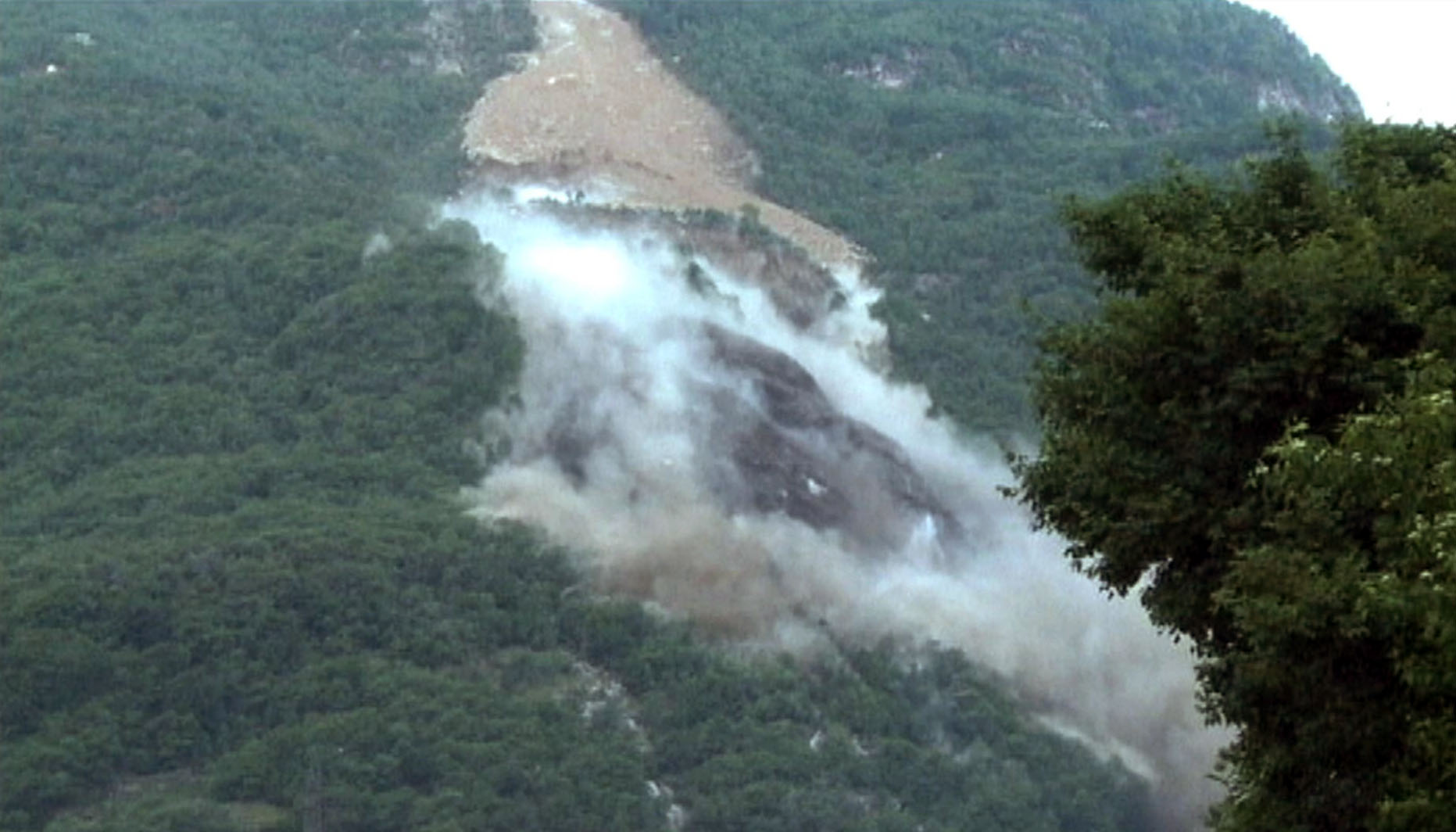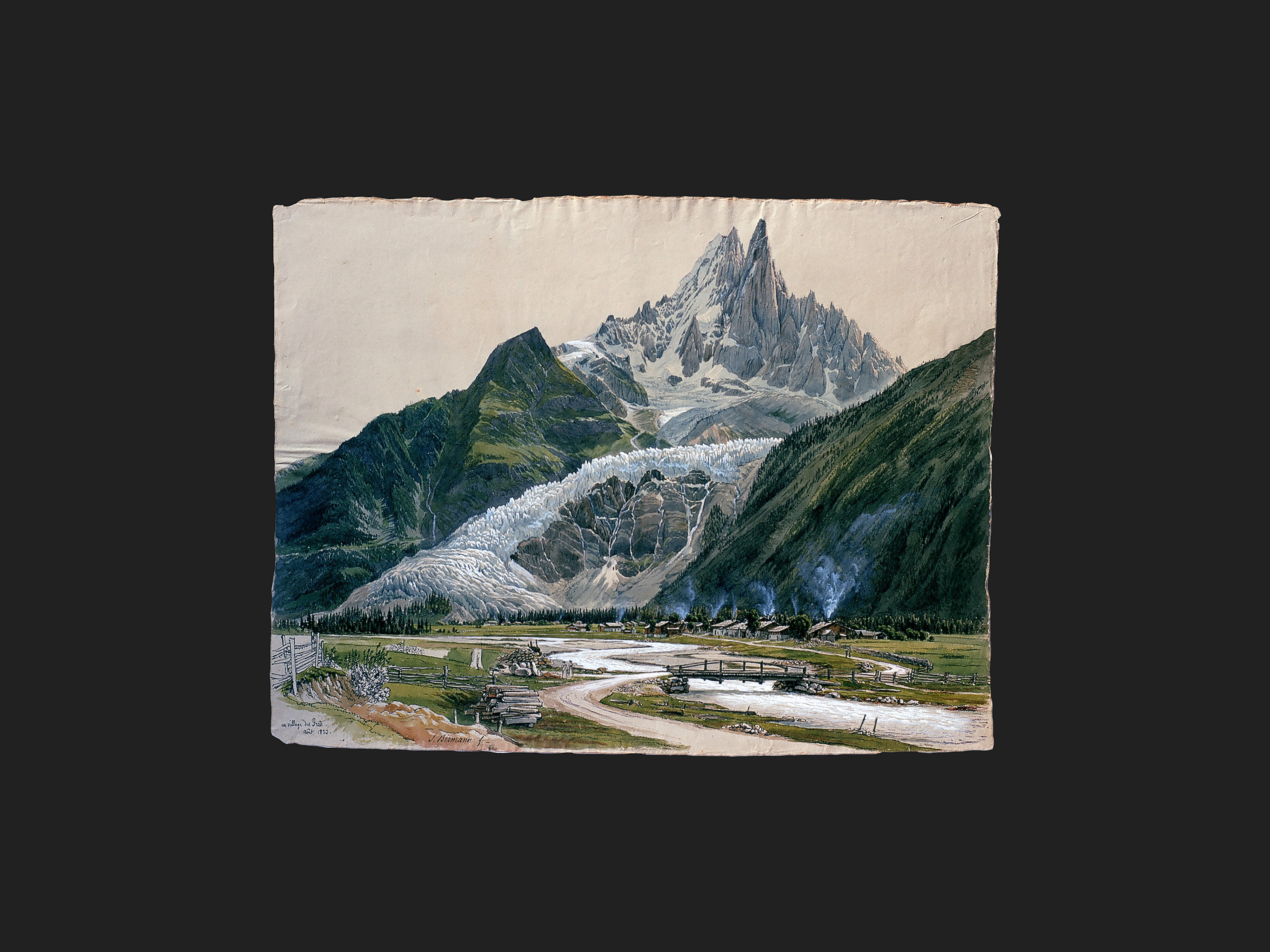Climate models clouded by uncertainty

The Intergovernmental Panel on Climate Change (IPCC) is about to table its latest assessment of global climate risks. But the outlook for the next century or two is hard to ascertain, with some phenomena considered unpredictable.
Climate models are never right. Like most scientific theories, they can never give the complete picture. And it’s not just the climate sceptics who say this, but also the researchers studying the climate. But there is no inherent contradiction, reckon the experts.
“The results from climate modeling give us important indications. They help us understand various aspects and processes and how to simulate them,” writes ProClim, the Swiss Forum for Climate and Global Change.
It is important to know the limitations of the model – which results are reliable and which ones aren’t. Predicting climate conditions is a “balancing act”, admits Stéphane Goyette, a climatologist at the University of Geneva.

More
Expert says climate change is up to us
Rain in 2100?
At the end of September, the IPCC will publish the first part of its fifth assessment report. The report finds humans responsible for 95 per cent of global warming, a figure that has increased five points since the last report in 2007.
Along with a summary of the latest data about increasing temperatures, melting ice caps and rising sea levels, it will also include the outlook for the next 200 years.
But how is it possible to predict what the climate will be like in 50 or 100 years, when we don’t even know what the weather will be like a week from now?
“Those are two entirely different things,” says Reto Knutti, climate and atmosphere professor at Zurich’s Federal Institute of Technology and one of the co-authors of the next IPCC report.
“With weather predictions, you want to know what conditions will be like on a given day. Climate simulations aren’t interested in knowing what the weather will be on December 31, 2100. The aim is instead to estimate how many days of rain and sunshine there will be on average at the turn of the century.”
Climate predictions rely on different models, explains Goyette. One model might be based on the carbon cycle, using demographic and economic data to determine the levels of greenhouse gases in the atmosphere.
To check the validity of a simulation, past data are introduced into the model to give a prediction of today’s climate. If the results are close, the model can be considered reliable.
Checking past predictions
Another method is to analyse whether past predictions were on target. Reseachers have checked whether some of those contained in the IPCC’s first report in 1990 hit the mark.
The first assessment said that the average temperature around the globe would rise by 1.1 degrees Celsius by 2030 – or 0.55 degrees by 2010.
In fact, temperatures between 1990 and 2010 rose by 0.35 to 0.39 degrees, as David Frame of the Victoria University of Wellington in New Zealand and Daithi Stone of the Lawrence Berkeley National Laboratory in California discovered. The difference between the predicted and observed temperatures was, they believe, due to natural variations.
Given that the previous models were designed with much simpler technology and software, for Frame and Stone that makes the precision of the earlier prediction all the more remarkable.
The estimations are also considered impressive because they could not take into account some events – such as the volcanic eruption in the Philippines in 1991, the industrial collapse of the Soviet Union or the economic boom in China – which had a major impact on the global climate.
The IPCC, which includes a number of Swiss scientists, has completed its fifth assessment report, which will be released in stages.
The first part – physical science – will be presented in Stockholm on September 27.
The second part – impacts, adaptation and vulnerability – will be published late in March 2014. And the third, concerning the mitigation of climate change, will be released in April. The final analysis will be presented in Copenhagen in November 2014.
IPCC assessments summarize current scientific knowledge about climate change. Governments are not bound to follow any conclusions, but authorities and the economy consider the reports in their decision-making processes.
Culprit carbon dioxide
Short-term changes in the amount of greenhouse gas emissions, as well as unforeseen events, had only a minor influence on global warming, however, according to Frame and Stone. What was decisive in their view was the increase of carbon dioxide (CO2) in the atmosphere since the Industrial Revolution.
Another study, also published at the end of last year, reached similar conclusions. The average global temperature and the amount of CO2 in the atmosphere rose as predicted by the IPCC, said the researchers from Germany, France and the United States. Sea levels rose faster than expected though.
To say that the 1990 predictions were “precise” is an exaggeration, however, according to Eduardo Zorita of the Institute of Coastal Research in Geesthacht, Germany.
“I would simply say they pointed in the right direction. Twenty years is not long enough to draw conclusions,” says the climatologist, who took part in the Swiss Climate Summer School in Grindelwald in September.
At this international meeting addressing climate reconstruction and predictions, the so-called “butterfly effect” was at the heart of discussions. Participants noted that just a few small variations in initial conditions could lead to a result diametrically opposed to the one expected.
“Climate research still has to deal with many unknowns,” said Zorita. “Today’s models are more sophisticated and provide more resolution, but it is frustrating to see that the uncertainty remains the same.”

More
Climate change causes more rock slides
In the clouds
According to Knutti, climate models are relatively good at predicting the long-term evolution of global temperatures or changes in rainfall.
“But they have trouble reproducing the entire water cycle or changes in atmospheric air flows,” he adds. The same goes for the interactions between the atmosphere and oceans, land or vegetation.
Clouds have a major influence on temperatures, points out Knutti. “Each cloud has different effects on radiation from space. Simulating their behavior is extremely difficult.”
Zorita says though that it still makes sense to keep on generating simulations.
“Climate models must be improved, and further development is possible,” he adds. “We saw it with weather predictions: 20 years ago, we could only look two days ahead. Now the outlook is as long as six days.”
The Swiss national weather service, MeteoSwiss, is responsible for producing climate models for Switzerland with the help of the country’s universities.
Until the middle of the century, temperatures are expected to rise in most parts of the country in all seasons.
Depending on CO2 levels, average temperatures could increase between 0.5 and 3.6 degrees Celsius by 2060.
In the lowest-lying areas of the Swiss Plateau, the number of so-called summer days (with temperatures over 25 degrees) is expected to increase from 50 today to 65 or even 80 per year. The growth period for plants would extend from 30 to 50 days.
The average rainfall during the summer months would drop. Longer stretches of warmer days and heatwaves can also be expected.
Source: MeteoSwiss
(Adapted from German by Scott Capper)

In compliance with the JTI standards
More: SWI swissinfo.ch certified by the Journalism Trust Initiative














You can find an overview of ongoing debates with our journalists here . Please join us!
If you want to start a conversation about a topic raised in this article or want to report factual errors, email us at english@swissinfo.ch.